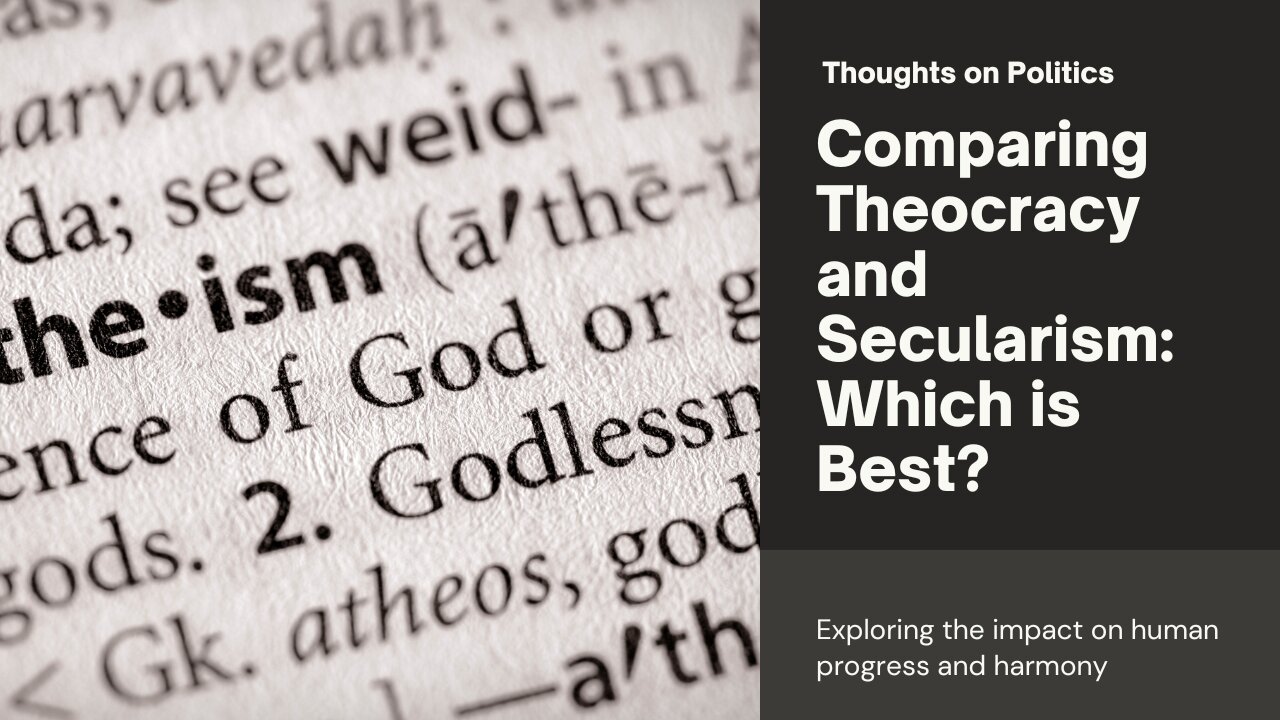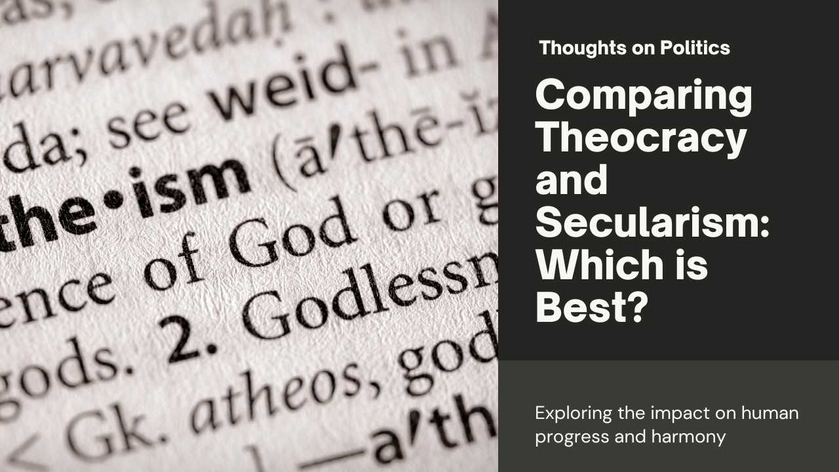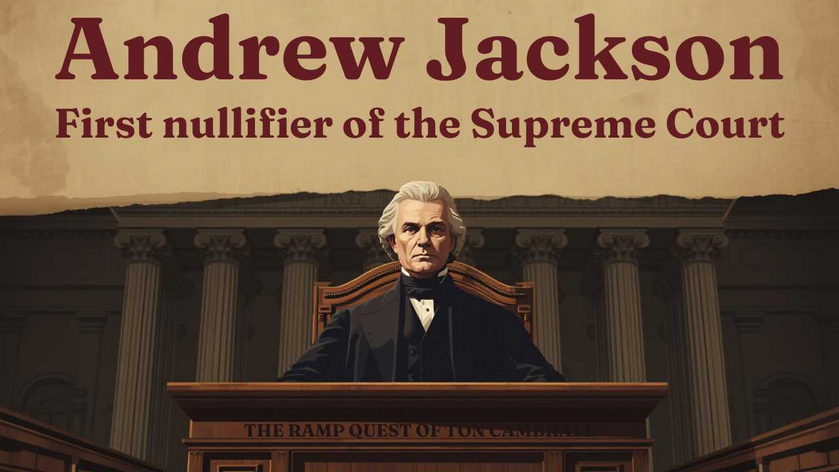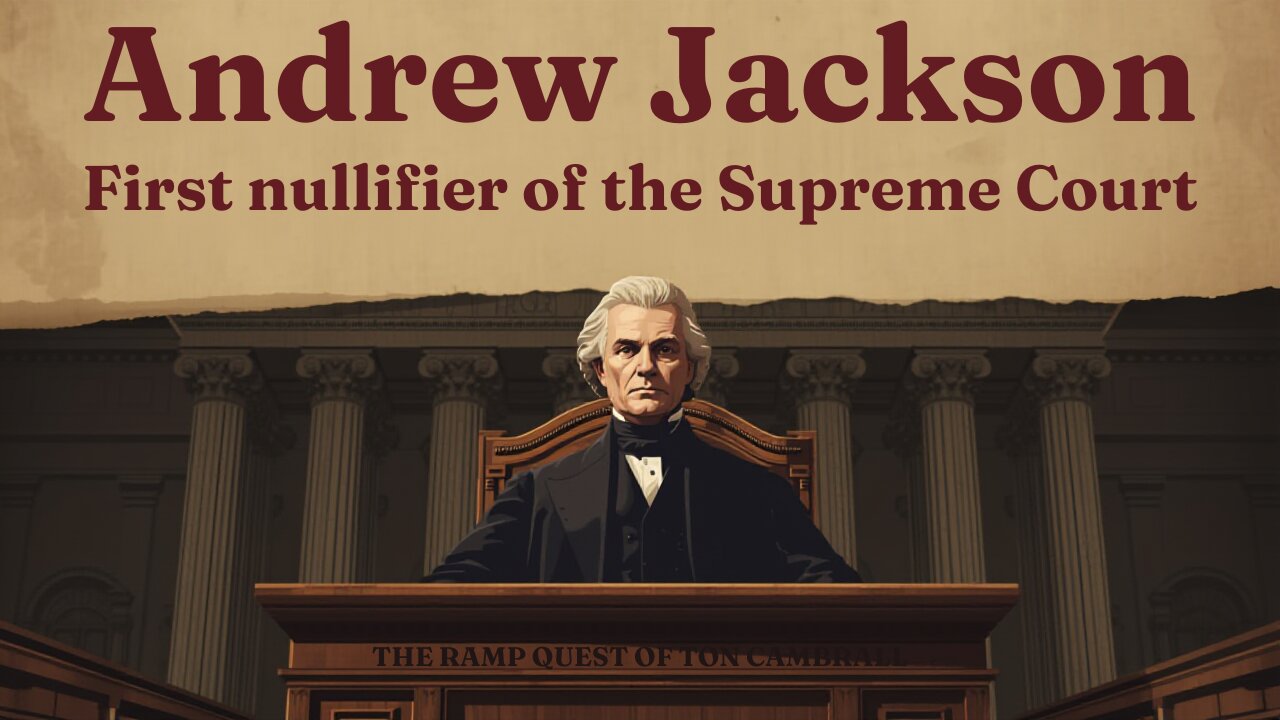James Carville, adviser to two Democratic Presidents, was always more partisan than most leftists. This month he has shown himself more vindictive – and maybe more paranoid in his ideas – than Biden. That’s a tall order, because Biden has governed as a bitter, vindictive old man from his first day. But now James Carville says that if his favorite candidates lose, America becomes a theocracy. Either he is not serious – that is, employing deliberate hyperbole – or his soul has entered a very dark place.
What did Carville say about theocracy?
Louisiana’s new law mandating a large and easily legible display of the Ten Commandments in every government-funded classroom, from kindergarten all the way through university, seems to have pushed him over the edge. The Daily Caller shared video of him, wearing a Louisiana State University semi-turtleneck, holding forth about theocracy in America. In addition to the Ten Commandments controversy, he worries about the precarious health of U.S. Supreme Court Justice Sonia Sotomayor.
https://x.com/DailyCaller/status/1805336642703573239
In a separate article The Daily Caller provided a partial transcript. Here is the full transcript:
I can assure you, if Trump wins and he names a replacement for Sotomayor, it’s game, set, match. There’s no more Constitution, there’s no more religious freedom. We’re now going to officially move into a theocracy. And so, I hear young people say, “Well I don’t feel like I have a stake in this.” Well. you got a h*** of a stake coming up. So let’s everybody remember what’s really really at stake here. What this is really really about.
And it’s about imposing a theocracy on other people and the fools and tools that are being used for this opening salvo, this Fort Sumter, Pearl Harbor, whatever you want to call it, is in Louisiana and they’re being exploited by people who really have, which I think is an odious and insidious agenda for the United States of America. So let’s fight this thing like our country depended on it because it does. Let’s remember the words of Roger Williams, and let’s team up and have George Washington in our huddle.
James Carville should mind whose names he is invoking. Roger Williams did flee to the place that became the colony of Rhode Island and Providence Plantations. He did so to get away from the Puritans who ran the Massachusetts Bay Colony. Most notably, he founded America’s first Baptist Church in the colony he founded. Baptists are famous for separating church and state – but that means only that the government ought not actually run the church, appoint bishops, etc. (In fact, Baptists recognize no such office as “bishop,” but only pastors and deacons.) But James Carville makes Roger Williams sound like an atheist!
And George Washington? Carville has evidently forgotten how Washington prayed earnestly at Valley Forge for ultimate victory. Neither man would want anything to do with the modern Democratic Party or the secular humanist state they plan.
Typical Carville of today?
This is only the latest appalling and sick “Carville-ism.” On June 6 – the 80th anniversary of Operation Overlord (“D-Day”), Carville encouraged news organs to abandon objectivity in reporting.

Now you have Joe Kahn, the new editor or publisher, whatever he is at The New York Times, saying, “We’re just going to cover this down the middle. We’re going to cover what it is.” I don’t think that’s the role of the news media at a time when the entire Constitution is in peril. I don’t have anything against slanted coverage. I really don’t … I would have something against it at most other times in American history, but not right now. [Forget] your objectivity. The real objectivity in this country right now is we’re either going to have a Constitution or we’re not.
And everything else, from Hunter Biden’s gun application to Judge Merchan’s, I don’t know, $35 contribution to all of the [useless drivel] that the professional center feels like they got to put out. I can’t tell you that these are bad people. They’re extremely naive people who have no idea what’s at stake in this election. So I think we need slanted coverage, more slanted coverage and I think we got to recognize the threat that this guy and the MAGA, not just him, the entire MAGA movement, from Alito and Trump on down is a serious, clear and present danger to the existence of the Constitution in the United States. And I mean that.
Shades of Saul Alinsky – or else galloping paranoid ideation. One would expect his wife, Mary Matalin, to smooth over his rough edges – but he seems incapable of listening to her now.
But more recently he has told the country what he means – except maybe he doesn’t know what theocracy means. Theocracy means “rule by God,” and that will not happen until Christ returns to Earth. Nor do more than a literal handful of people want a “Church of America”; that wouldn’t even remain stable.
Nor can we guarantee that replacing even the rudest, most contentious member of the Liberal Bloc will change the Court. Expanding the Moderate Bloc from three members to four would place them firmly in control. Replacing Sotomayor with another Originalist might work better – but would be far from Carville’s “game, set, match.” The Court would, instead of 6-3 decisions either way, produce 7-2 Originalist or 5-4 Liberal decisions most of the time. Only if Trump manages to replace two Liberals could he cement a permanent Originalist majority. Justice Sotomayor is indeed in poor health, but Justice Elena Kagan is in better health. And Ketanji Brown Jackson only recently joined. The only way she is getting off the bench any time soon is on impeachment for, and conviction of, infidelity to the Constitution.
What does he mean by theocracy?
As mentioned, theocracy strictly means “rule by God.” Christian prophecy, still outstanding, states that this will come eventually (and perhaps very soon, but that’s for another day). Carville probably is defining theocracy in the more common sense: rule according to religious precept.
Because Carville cited the Ten Commandments (and Louisiana’s law), these become the best reference point.
You shall have no other gods before Me.
Exodus 20:3 (all citations from NASB)
Carville might answer that he wants no gods at all. One can only infer his political positions, because he has never stated them for the record. Nevertheless one may easily infer his atheism, secular humanism, or Earth-worshiping environmentalism, from his historical client list.
In any case, everyone has a god, even if it’s merely self, or “all of humanity,” or the Earth herself. Where exactly he comes down, is difficult to say. “Progressive” policy (see We’re Right, They’re Wrong: a Handbook for Spirited Progressives, 1996) encompasses all these things. (Yes, even self, as in “pleasures and desires of the moment.” Regarding the net worth of oneself or others, that touches on covetousness, a persistent Progressive ailment.)
What does God ask of one believing in Him, except fair treatment of fellow humans, and stewardship of the Earth? What could be wrong with that? Those who oppose theocracy won’t say.
Actually God asks one other thing: that we not place mere human knowledge above Him. But as CNAV recently noted, we do that all the time, by elevating modern medicine to Divine status.
Concerning idolatry and false swearing
You shall not make for yourself [any] idol, [nor] worship them or serve them.
Exodus 20:4-5, partial paraphrase
Modern American society has idolatry as its middle name. America creates idols all the time, and it’s unhealthy. These are typically movie, TV, and popular music stars. (Classical music does not lend itself to idolatry. Even Van Cliburn, the great classical pianist, didn’t have a fawning entourage to rival that of Taylor Swift.) The anti-theocrats, for their part, want to substitute their idols for the ones now strutting and preening and bragging. Christians – and observant Jews – want to abolish idolatry.
You shall not take the Name of the LORD your God in vain.
Exodus 20:7
James Carville earned the nickname Ragin’ Cajun by his foul mouth and his Louisiana background. (Though whether he actually descends from the Acadians whom the British transported from Nova Scotia in 1755 is not established.) In any event, the Third Commandment is as much a prohibition against perjury as against profanity. (That’s why the rest of that verse speaks of God not acquitting someone who swears falsely in His Name.) How could anyone object to that prohibition?
Concerning the Sabbath
Remember the Sabbath day, to keep it holy. For six days you shall labor and do all your work, but the seventh day is a Sabbath of the Lord your God; on it you shall not do any work, you, or your son, or your daughter, your male slave or your female slave, or your cattle, or your [roomer, boarder, or lodger] who stays with you.
Exodus 20:8-10
The Sabbath involves two very salient issues:
Regular rest from one’s labors, and
The origin of the universe, the Earth, and life.
During the French Revolution, Joseph Lagrange’s Revolutionary Committee on Weights and Measures redesigned the calendar, along with much else. Relevant to this discussion, the Republican Calendar sported three ten-day intervals per month – ten days, not seven. (Lagrange rounded out the year with five specially named days – six during leap years – before the Autumnal Equinox.) That calendar didn’t last, because human beings could not adjust well to a ten-day work-rest cycle. Seven days – God’s favorite number – provide the best such cycle. Accordingly, Emperor Napoleon I reinstated the Gregorian Calendar shortly after taking his crown. The Paris Commune would experiment with the Republican Calendar toward the end of the nineteenth century. All such experiments ended with the Paris Commune.
But God explained to Moses the real reason for the seven-day interval:
For in six days the Lord made the heavens and the earth, the sea and everything that is in them, and He rested on the seventh day; for that reason the Lord blessed the Sabbath day and made it holy.
Exodus 20:11
That goes to James Carville’s real grievance against what he calls theocracy – in addition to having to mind his language. More than any other passage, this tells us that God exists, and created everything. Thomas Jefferson, “deist” that he was, admitted – in the Declaration of Independence – that humans had a Creator. Perhaps in Carville’s mind, the alternative to theocracy would be sanitizing the Declaration to remove all references to “nature’s God,” “their Creator,” “the Supreme Judge of the world,” and “Divine Providence.” But he might want to consider an increasing body of hard evidence for creation, like these three examples.
Concerning parents – and murder
Honor your father and your mother, so that your days may be prolonged on the land which the Lord your God gives you.
Exodus 20:12
The land reference was to ancient Israel – but, given the Mayflower Compact, it could also apply to these United States. In God’s scheme, parents deserve honor – and have certain responsibilities, and with them, authority. Maybe that’s another Progressive problem with God – that He forbids them to substitute the government for the parents, diminish their authority, keep secrets from them – and cause their children to mutilate their bodies and poison themselves with hormones in order to satisfy the Depopulation Agenda. (That’s another thing that God forbids; he tells us to “be fruitful and multiply.”
You shall not [commit] murder.
Exodus 20:13
A prohibition against murder is basic to any civilized society. Western society abolished duelling at about the time it abolished slavery, and on much the same grounds. But to a Progressive, a murderer is an irregular population thinner. That goes double with abortion. Unfortunately, some Justices of the Supreme Court concern themselves more with maintaining existing institutions than with judging them as to whether they endorse or otherwise encourage murder, in this case, abortion.
Let us anticipate James Carville’s objection: “I don’t need a theocracy to tell me murder is wrong!” Why not? How can anyone know, apart from instruction from God, that murder is inherently evil? At best, laws against murder in a Godless society become a mutual nonaggression pact. At worst, no one writes those laws, and murder becomes just another hazard of human company. (To say nothing of the murders of political opponents, inconvenient witnesses, and righteous judges, all in the name of expediency.)
Concerning adultery, larceny, and perjury – theocracy backs criminal law
You shall not commit adultery.
Exodus 20:14
The United States has never executed anyone for adultery – although the witchcraft tribunals in Salem and other Massachusetts cities came close, during the Protectorate of Oliver Cromwell in England. But until the twentieth century, adultery had legal and other consequences. Typically these included divorce, and forfeiture of assets to the “cheated-on” spouse, usually the wife. James Carville is still married to his once-conservative, now libertarian, wife Mary Matalin. As old as he is, people might not expect him to cheat. But no one, especially no man, is ever too old to cheat. Furthermore, the removal of consequences for cheating – adultery – has brought more of it, with consequent harms. Harms to the cheated-on spouse, and harms to the children, if any. Just because Carville doesn’t appreciate them, doesn’t negate them.
You shall not steal.
Exodus 20:15
Oh, yeah. A thief is an irregular wealth-redistribution agent. Easy question.
You shall not give false testimony against your neighbor.
Exodus 20:16
Same thing. Half the Democratic platform since 2020 has been about giving false testimony against Donald J. Trump and all his supporters. The other half has been about fraud, through misinformation – of which they accuse others, another kind of direct false testimony. Furthermore, when James Carville calls for slanted news, he calls for more false testimony against half the country (or more). (And when he calls for more unrighteous judges, like Sonia Sotomayor, now he sacrifices judgment to expediency.)
Concerning covetousness – and summing up
You shall not covet.
Exodus 20:17
Entitlement programs are all about covetousness. “Why should we starve when such-a-one has supplies to last a week?” a Democratic activist, especially a Squad member, asks. If “the love of money is the root of all kinds of evil,” covetousness is the root of all kinds of crime. These include all the crimes against fellow human beings mentioned thus far – murder, adultery, larceny, and perjury.
Again, we do need what James Carville calls theocracy to tell us that covetousness is wrong. Otherwise, there never is a law against it, only against acting on it. But eventually one does act on a sinful thought – which is the entire point of taming one’s thoughts. As Jesus Christ said several times on the Mount of the Beatitudes.
Suddenly theocracy – by Carville’s crude definition – doesn’t sound so unattractive. In fact, compared to it, human institutions are sorely lacking. “Resident” Joe Biden in America, and other leftist “leaders” abroad, have brought humanity to the dead end of Godless living. A return to theocracy, if that’s what one wants to call obeying Divine precept, is just what the Doctor, and Chief Architect, ordered.
Link to:
The article:
https://cnav.news/2024/06/30/foundation/constitution/theocracy-james-carville-serious/
Video:

Video: James Carville fears theocracy:
https://x.com/DailyCaller/status/1805336642703573239
Video: James Carville urges slanted news:

Declarations of Truth X feed:
Declarations of Truth Locals Community:
https://declarationsoftruth.locals.com/
Conservative News and Views:
Clixnet Media






















